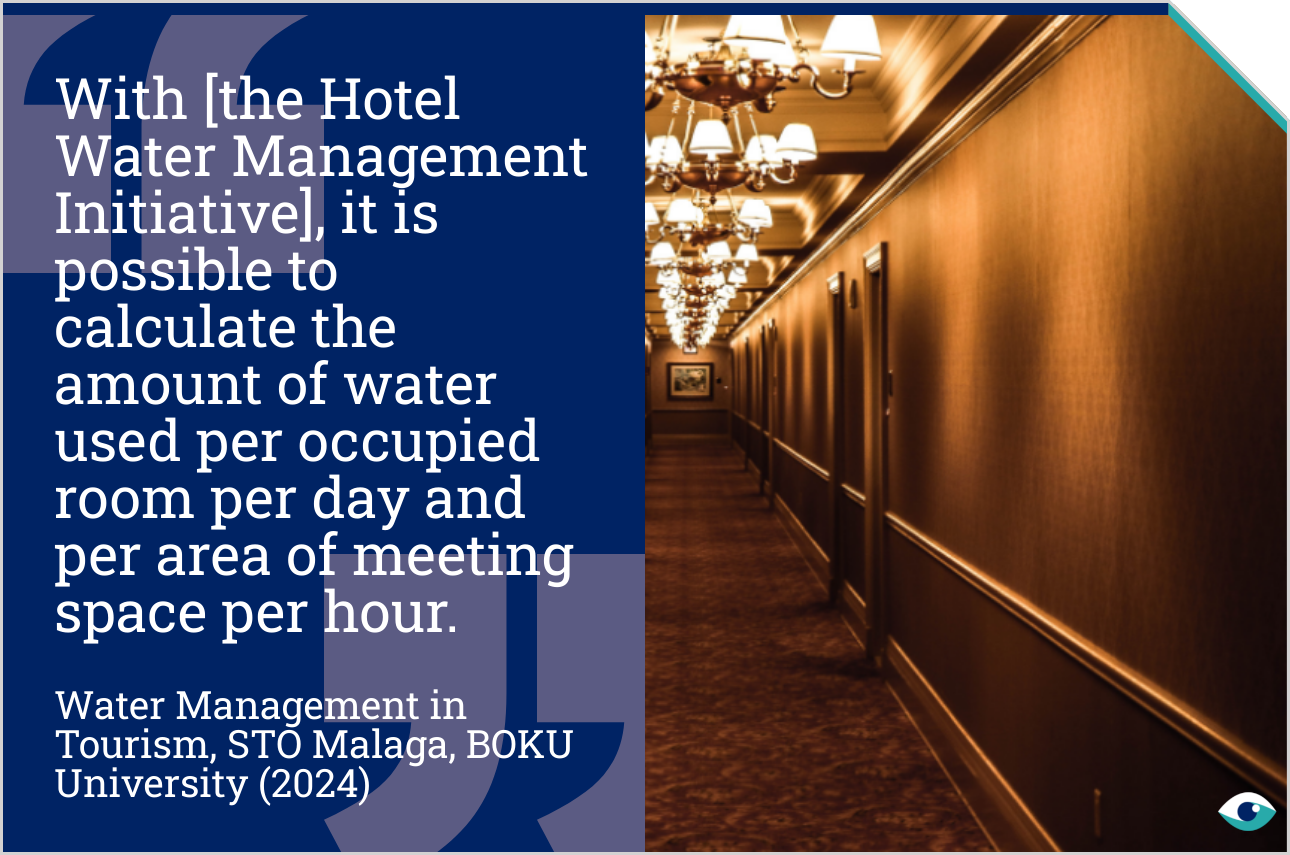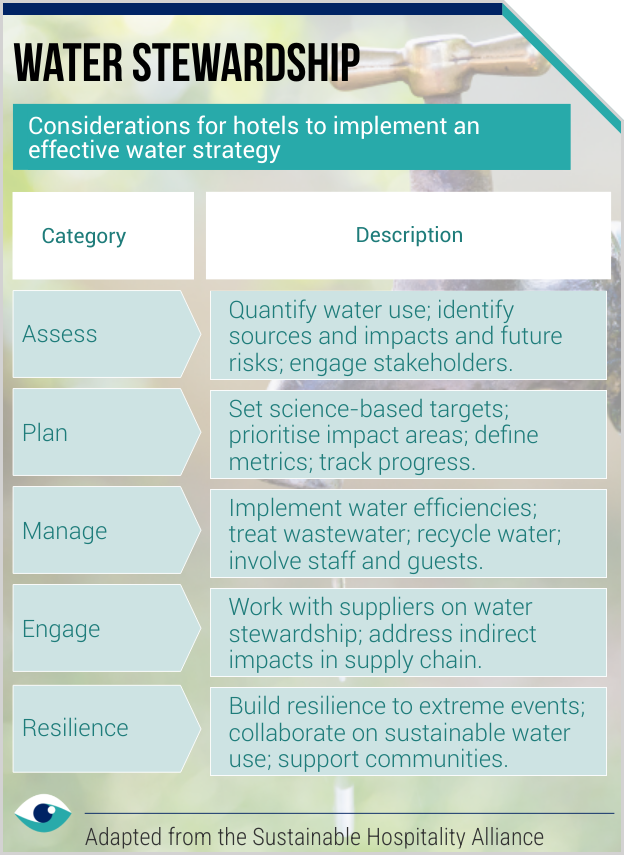Water scarcity increasingly impacts the hotels and lodging industry due to growing demand and declining water supply in quality and quantity. In 2024, BOKU University in Vienna and the Municipal Government of Malaga released "Water Management in Tourism," highlighting escalating global water scarcity pressures. Water risks present uncertainties for the hotel & lodging industry, as drought impacts are indirect and cascading, depending on social, economic, regional and climatological contexts. Therefore, accommodation providers should conduct water risk assessments and implement water-saving measures to mitigate impacts of water scarcity and stress.

Proactive water risk management essential for hotels
Hotels urged to address water scarcity through proactive risk assessments and sustainable land use changes for long-term viability
Planet: Environmental impacts
Hotels & lodging
AT A GLANCE
Water scarcity is a significant risk for hotels, necessitating proactive assessments and water-saving measures.
This is vital as the global water crisis ranks among top five global risks, with hotels facing indirect impacts complicating policies.
By adopting the 'three pillars' approach and DRR practices, hotels can enhance resilience and support sustainable development.
Impact of water scarcity
Water scarcity and drought are escalating global risks that significantly impact hotel operations. The global water crisis ranks among the top five global risks in terms of impact on humanity, underscoring its critical significance for the hospitality sector. Hotels in drought-prone areas face indirect and cascading impacts, which complicate the creation of adequate preparatory and response policies due to insufficient water availability and increasing climate-related risks.
Proactive water management
To increase resilience and reduce drought impacts, hotels must transition from reactive to proactive water risk management, including comprehensive risk assessments and climate adaptation strategies. Implementing proactive strategies like the "three pillars" approach helps structure integrated drought management, encompassing monitoring, vulnerability assessment, and mitigation actions. By adopting Disaster Risk Reduction (DRR) practices, hotels can strengthen institutions, infrastructure, and emergency preparedness to address water-related risks effectively.

Global South water risks
In the Global South, entities like H World Group are proactively mitigating water risks by considering extreme weather events in construction and implementing safety contingency plans to reduce climate-related vulnerabilities. H World Group applies water-resistant coatings to roofs during construction to mitigate impacts from extreme hydrological weather events. They have also included precautions against typhoons, rainstorms and blizzards in their Safety Accident Contingency Plan to reduce risks for customers.

Managing risks proactively
The hotels and lodging industry must prioritise proactive water risk management. By embracing proactive measures, hotels can ensure sufficient water availability, safeguard development gains and contribute to long-term socio-economic development. Such strategies not only mitigate immediate risks but also build climate resilience by incorporating forward-looking elements like climate risk assessments and stress testing.
FURTHER READING
- Water Management in Tourism (BOKU University - 2024)
- Water and Tourism: Challenges and Opportunities (UNWTO - 2023)
- Water stewardship (Sustainable Hospitality Alliance - 2021)
